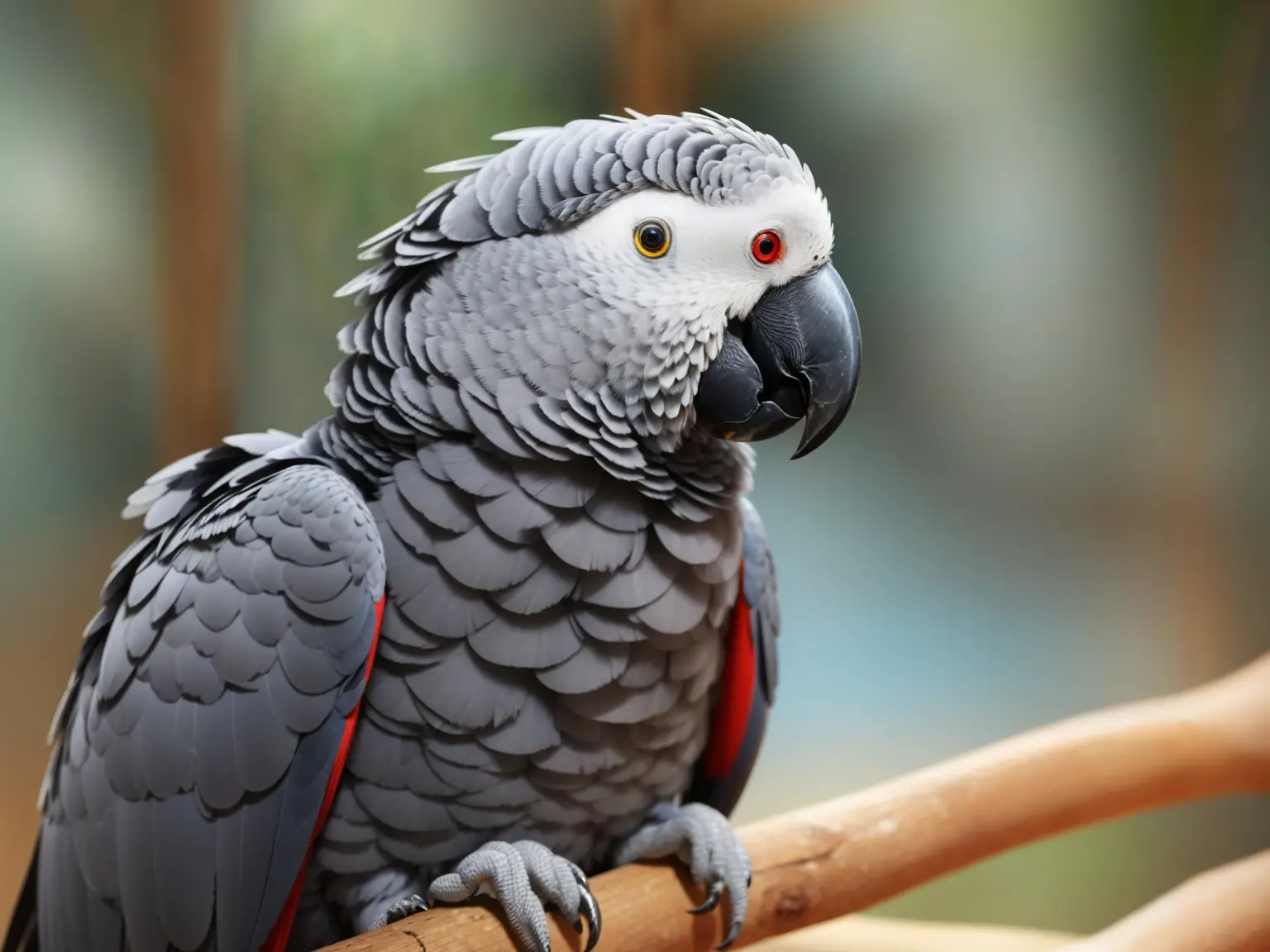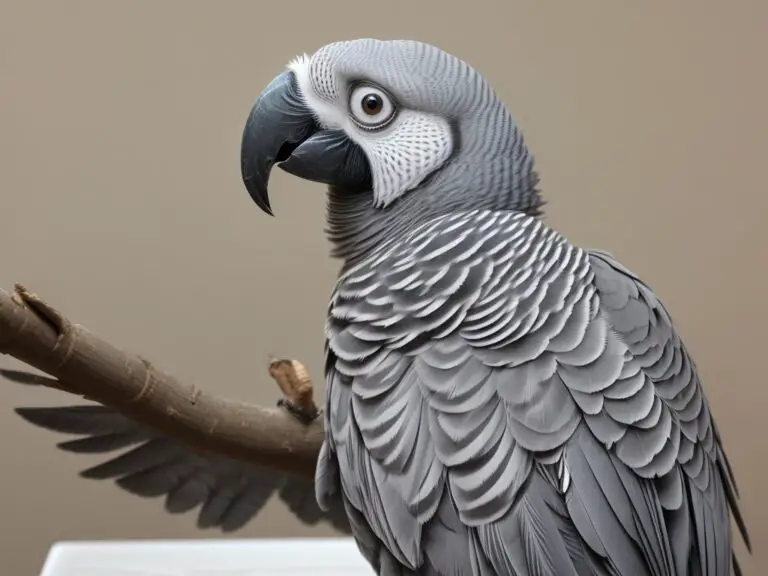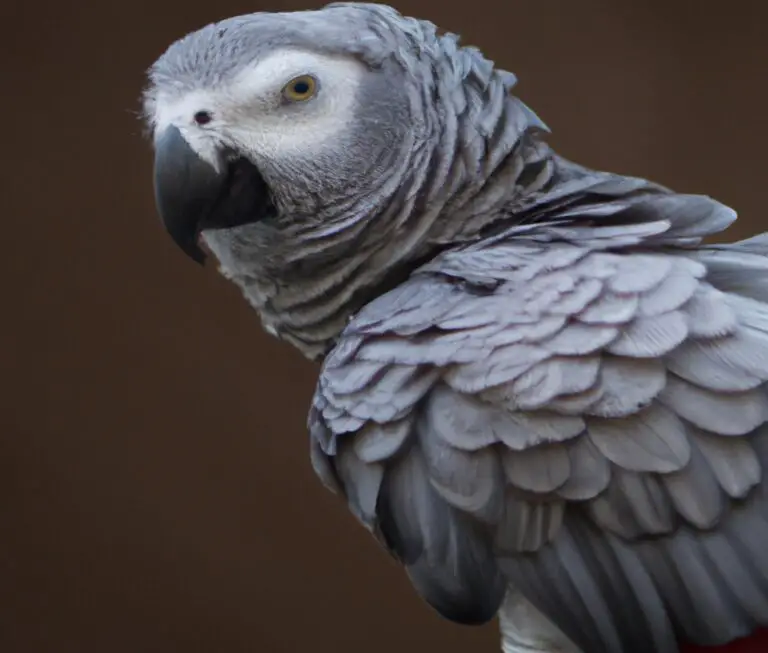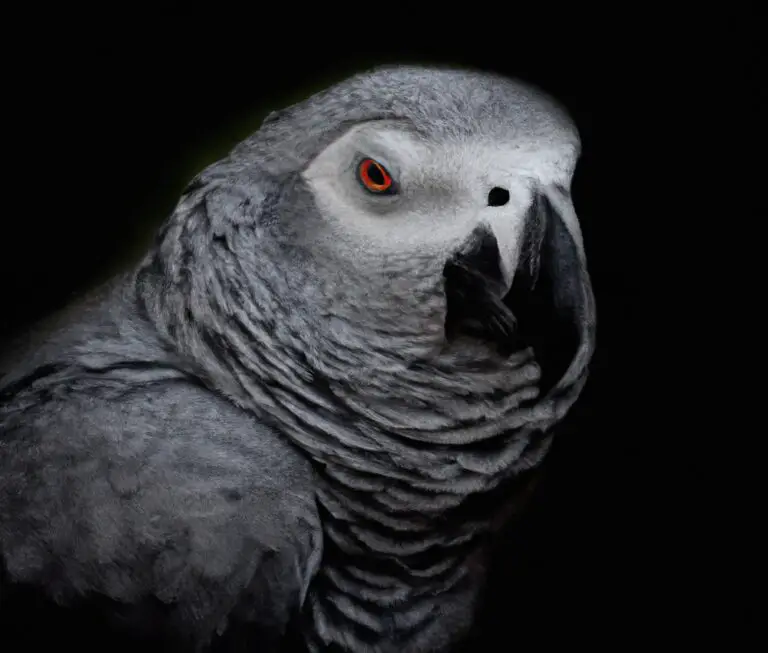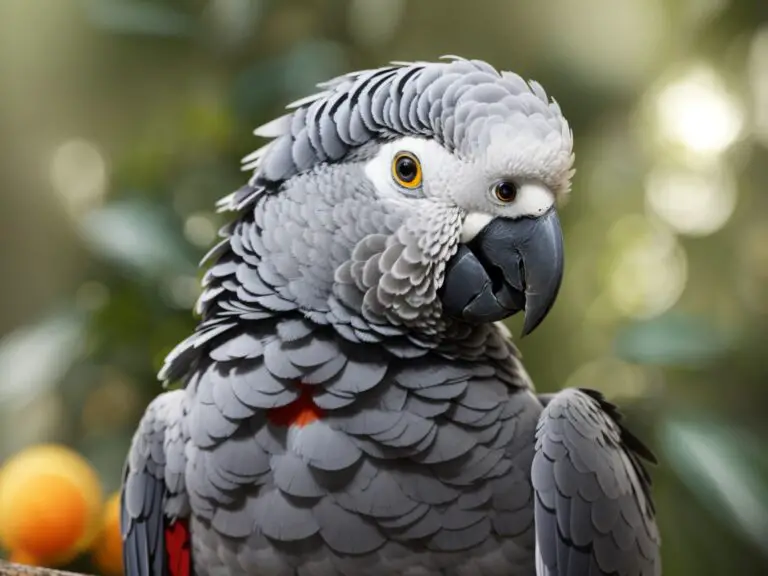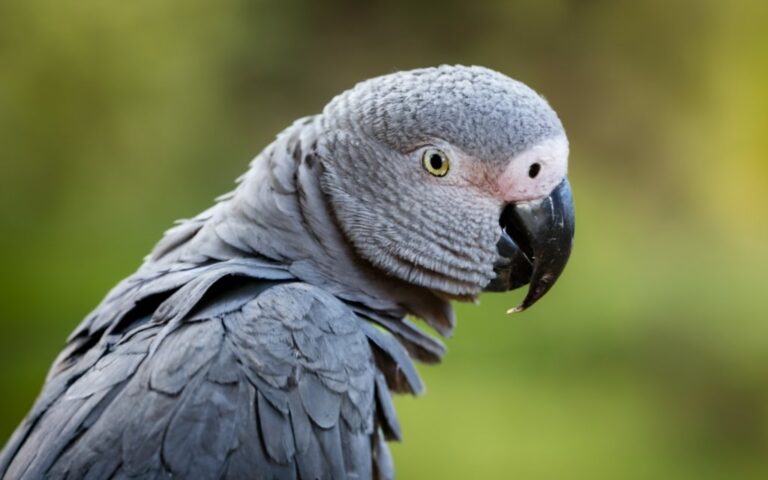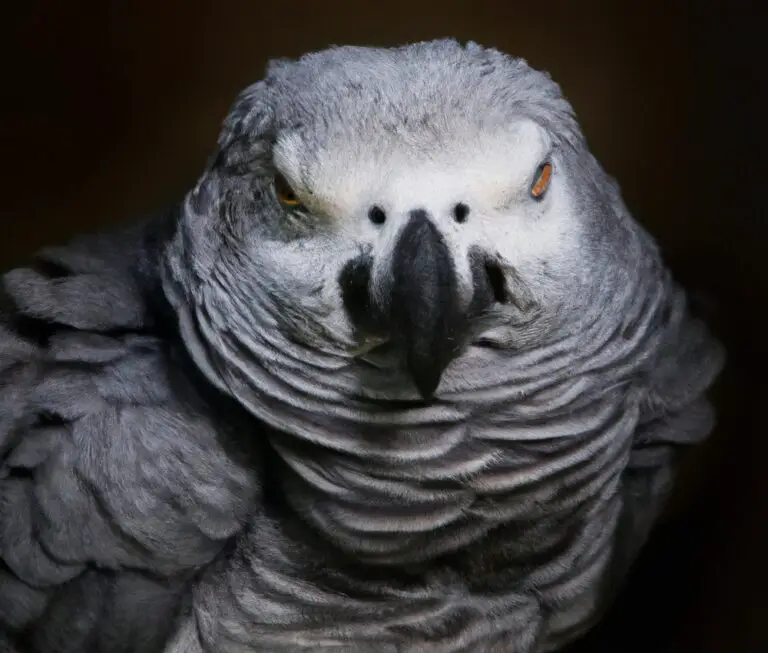Why Do African Grey Parrots Shiver?
Key Takeaways:
- African grey parrots shiver as a way to regulate their body temperature.
- Shivering in African grey parrots can also be a response to fear or excitement.
- Health issues or environmental factors can also cause African grey parrots to shiver.
- Understanding the reasons behind shivering in African grey parrots is important for their overall well-being.
Are you curious about the mysterious behavior of African grey parrots? Well, one fascinating trait that these beautiful birds possess is their tendency to shiver.
But why do they do it?
As someone who has spent years studying and observing these magnificent creatures, I can attest that there is more to this behavior than meets the eye. In this article, we will delve into the world of African grey parrots, explore their physical characteristics and natural habitat, and uncover the reasons behind their shivering.
Get ready to unravel the secrets of these enigmatic birds!
| Reason | Explanation |
| 1. Cold temperature | African grey parrots can shiver when they are feeling cold, just like humans. Shivering is a natural response to low body temperature and helps to generate heat. |
| 2. Fear or stress | Shivering can also be a sign of fear or stress in African grey parrots. When they feel threatened or uncomfortable, their body may tremble as a physiological response. |
| 3. Illness or pain | In some cases, shivering in African grey parrots may be a symptom of an underlying illness or pain. It is important to monitor their behavior and consult a veterinarian if the shivering persists or is accompanied by other concerning symptoms. |
| 4. Feather fluffing | Parrots, including African grey parrots, may also shiver as part of their normal grooming behavior. Shivering can help them fluff up their feathers and maintain their appearance. |
Understanding African Grey Parrots
African Grey Parrots are fascinating birds with unique physical characteristics and behaviors that make them stand out among other parrot species.
Physical Characteristics of African Grey Parrots
African Grey Parrots have a distinctive appearance. They are medium-sized birds with a gray overall plumage.
They have a short, hooked beak and bright red or maroon tail feathers.
Their eyes are yellow and they have strong legs and feet for climbing. Additionally, they have a high level of intelligence and are known for their impressive ability to mimic human speech and sounds.
Overall, African Grey Parrots are beautiful and captivating birds.
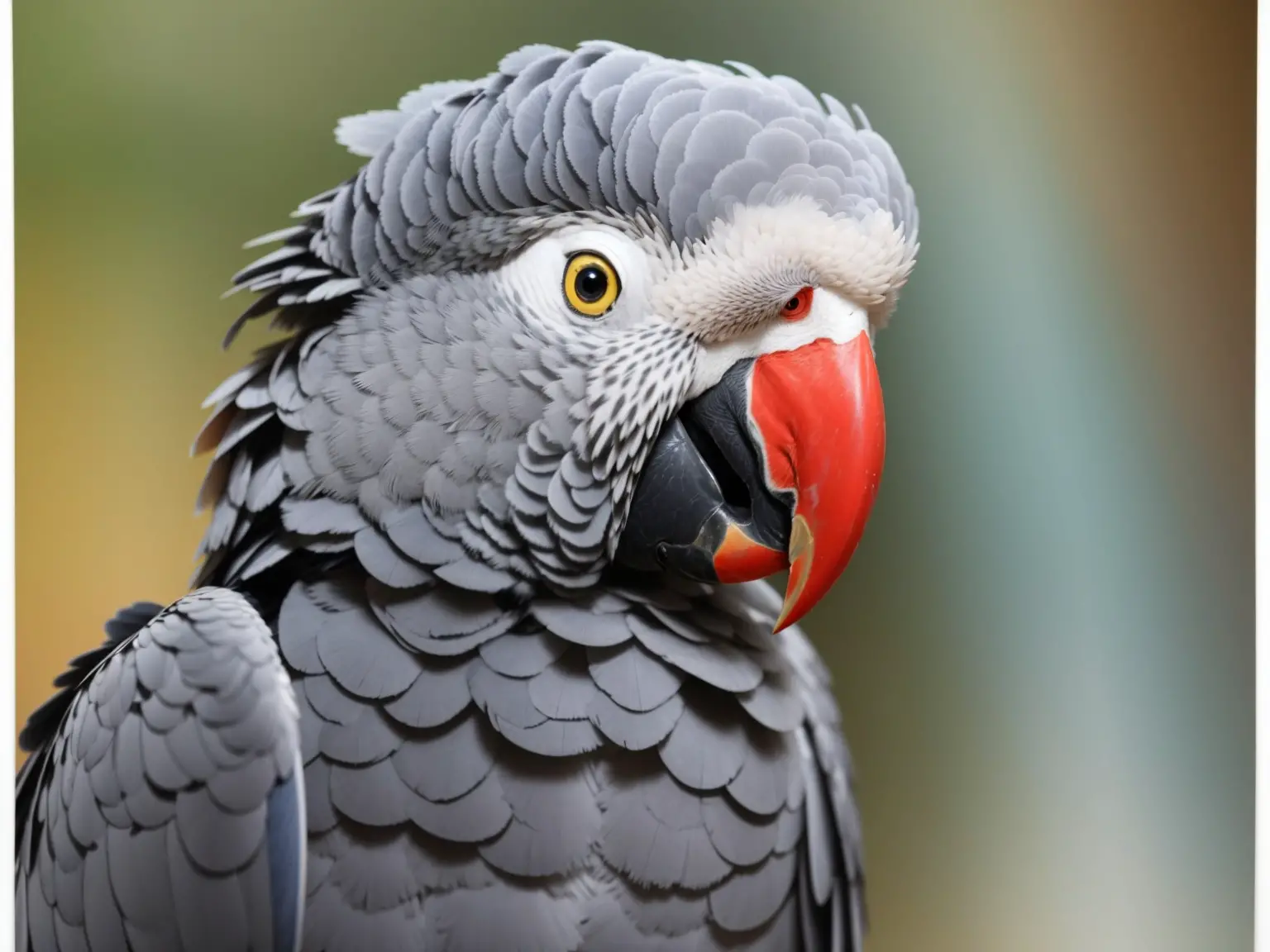
Natural Habitat and Behavior of African Grey Parrots
African Grey Parrots are native to the rainforests of West and Central Africa.
They are highly sociable and intelligent birds, often found in large flocks.
They have a wide range of vocalizations and are known for their ability to mimic human speech.
In their natural habitat, they forage for food, including fruits, nuts, seeds, and vegetation.
They are also known to engage in complex social behaviors, such as bonding with mates and raising their offspring.
These parrots require mental stimulation and social interaction to thrive.
Communication Methods of African Grey Parrots
African Grey Parrots are highly intelligent and have various communication methods. They use vocalizations, including mimicking human speech, to express their needs and emotions.
They also use body language, such as fluffing their feathers or raising their crest, to communicate with other parrots and their owners.
They can also communicate through their eyes, using eye contact to convey meaning. Overall, African Grey Parrots have a wide range of communication methods to express themselves.
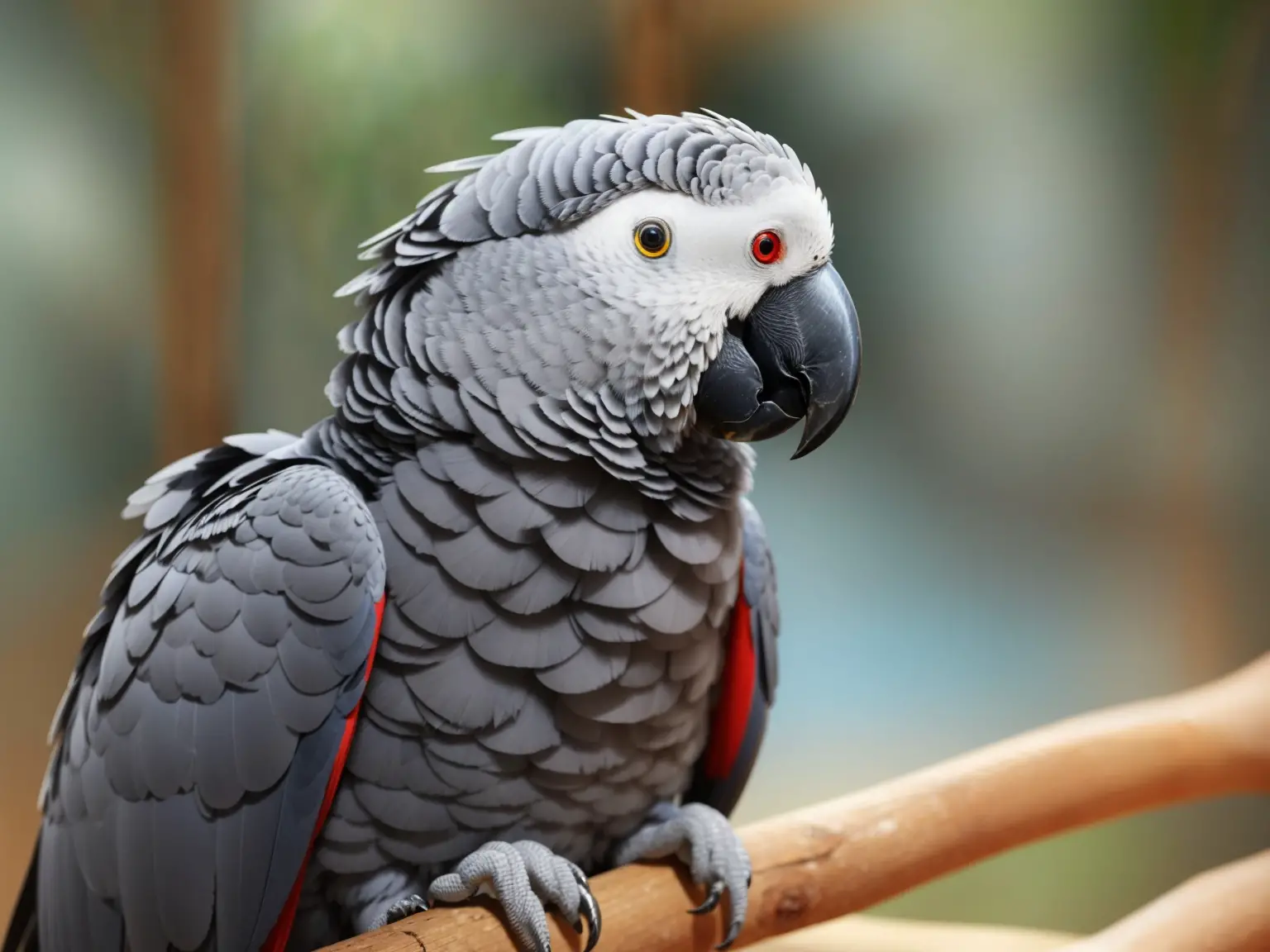
Unveiling the Mystery of Parrot Shivering
Curious about why African grey parrots shiver?
Let’s dive into the mystery and uncover the reasons behind this behavior.
What is Shivering in African Grey Parrots?
Shivering in African Grey Parrots refers to the involuntary trembling or shaking of their body. It can be noticeable in their feathers, wings, or even their whole body.
Shivering is a physical response that may indicate various underlying causes such as health issues, environmental factors, or psychological stress.
Understanding the reasons behind the shivering can help address the problem and ensure the well-being of the parrot.
Environmental Factors that Impact Shivering in African Grey Parrots
The environmental factors that can impact shivering in African Grey Parrots include temperature fluctuations, inadequate lighting, improper humidity levels, and exposure to drafts. These factors can cause discomfort and stress for the parrots, leading to shivering as a way for their bodies to regulate temperature and cope with the environment.
Providing a stable and comfortable environment is essential for minimizing shivering episodes in African Grey Parrots.
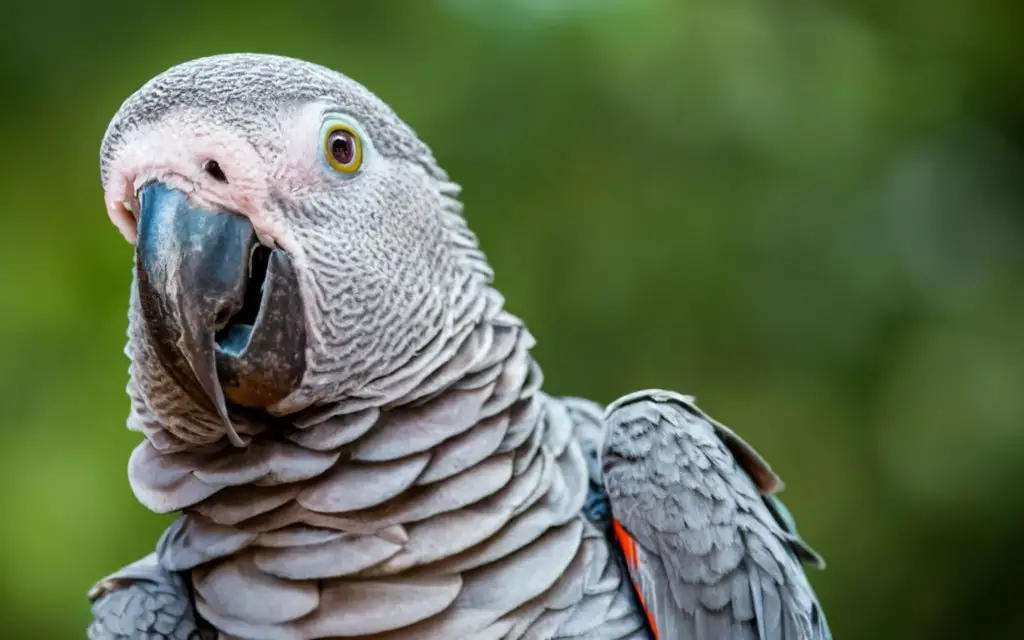
Common Health Issues in African Grey Parrots
African grey parrots can experience several common health issues.
Psychological Stress and Shivering in African Grey Parrots
Psychological stress can cause shivering in African Grey Parrots. This can be due to changes in their environment, lack of mental stimulation, or social isolation.
It’s important to provide a stimulating and nurturing environment to minimize stress and promote their well-being.
A veterinarian can help identify and address underlying stressors.
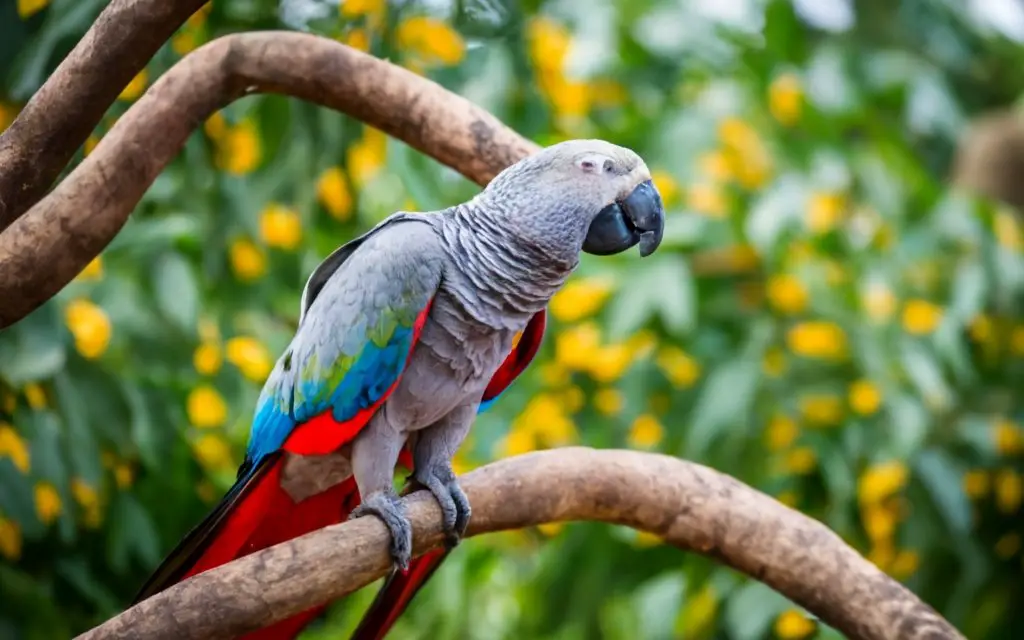
Seeking Professional Help for Shivering Parrots
Preparing for a Veterinary Visit
Preparing for a veterinary visit is important to ensure the well-being of your African Grey Parrot. Here’s what you can do:
- Gather information: Write down any changes in behavior or symptoms your parrot is experiencing.
- Cage cleanliness: Clean the cage and remove any potentially harmful objects.
- Transport: Use a suitable carrier to safely transport your parrot, ensuring proper ventilation and covering it partially to reduce stress.
- Documentation: Bring your parrot’s medical records, including vaccination history and any previous diagnoses or treatments.
- Questions: Prepare a list of questions or concerns to discuss with the veterinarian.
- Diet: Avoid feeding your parrot for a few hours before the visit, as some procedures may require sedation or fasting.
- Comfort: Bring familiar objects like toys or a blanket to help your parrot feel secure during the visit.
- Patience: Be patient during the examination and follow any instructions or recommendations given by the veterinarian.
Remember, by being prepared, you can help make the veterinary visit a positive experience for both you and your parrot.
Creating a Healthy Environment for African Grey Parrots
To create a healthy environment for African Grey Parrots, focus on temperature regulation, proper diet and nutrition, and providing socialization and mental stimulation.
Temperature Regulation for Parrots
Parrots, including African Grey Parrots, are highly sensitive to temperature changes. They have a natural ability to regulate their body temperature, but it’s important to provide them with a suitable environment.
Maintain ambient temperatures between 65-85°F (18-29°C) and avoid exposing them to extreme cold or heat.
Provide a well-insulated cage and regulate the temperature with heating or cooling devices when necessary. Avoid placing the cage near drafty areas or direct sunlight.
Regularly monitor the temperature to ensure the comfort and well-being of your parrot.
Proper Diet and Nutrition for Parrots
Proper diet and nutrition are essential for the health of parrots. Here are some key points to keep in mind:
- Fresh fruits and vegetables: Provide a variety of these daily to ensure a well-rounded diet.
- High-quality pellets: Choose pellets that are specifically formulated for parrots, as they contain essential nutrients.
- Limited seeds and nuts: While these can be offered as treats, they should not make up the majority of their diet.
- Avoid certain foods: Some foods, like avocado, chocolate, caffeine, and alcohol, can be toxic to parrots and should be avoided.
- Calcium and Vitamin D: These are crucial for strong bones and beak health, so incorporate sources like cuttlebone or mineral blocks.
- Water: Fresh, clean water should always be available for your parrot to drink.
By providing a well-balanced diet and meeting their nutritional needs, you can help ensure your parrot’s overall health and well-being.
Proper Socialization and Mental Stimulation for Parrots
Proper socialization and mental stimulation are essential for parrots to lead happy and healthy lives. Here are some important tips to ensure your parrot gets the socialization and mental stimulation they need:
- Spend quality time with your parrot: Interact with your parrot daily, whether it’s through talking, playing, or training. This helps build a strong bond and keeps them mentally engaged.
- Provide a variety of toys and activities: Parrots are intelligent creatures that thrive on mental stimulation. Offer them a variety of toys, puzzles, and activities that challenge their problem-solving skills and keep them entertained.
- Encourage social interaction: Parrots are social animals and benefit from interacting with humans and other birds. Encourage positive social interactions by introducing your parrot to new people, pets, and environments gradually.
- Offer a safe and stimulating environment: Create an environment that is safe and stimulating for your parrot. Ensure they have enough space to move around, explore, and exercise. Provide perches of different sizes, textures, and heights to keep their feet and beak in good condition.
- Rotate toys and provide new experiences: Keep your parrot’s environment interesting by rotating their toys regularly and introducing new experiences. This prevents boredom and encourages mental agility.
Remember, every parrot is unique, so experiment with different activities and observe what your parrot enjoys the most. Regular socialization and mental stimulation will help keep your parrot happy, engaged, and mentally healthy.
Frequently Asked Questions about Parrot Shivering
Is shivering in African Grey Parrots always a cause for concern?
Shivering in African Grey Parrots is not always a cause for concern.
It can be a natural response to cold temperatures or excitement.
However, if the shivering persists or is accompanied by other symptoms, it’s important to seek veterinary attention to rule out any underlying health issues.
Can parrot shivering be prevented?
Yes, parrot shivering can be prevented by creating a healthy environment. Ensure the temperature is suitable, provide a balanced diet, offer mental stimulation, and give them plenty of socialization.
Regular vet check-ups can also help identify and address any potential health issues.
How long does it take for a shivering parrot to recover?
The recovery time for a shivering parrot can vary depending on the underlying cause and the treatment provided.
In some cases, it may take a few days to a couple of weeks for the parrot to fully recover.
It is important to seek veterinary help to determine the cause and receive appropriate treatment for a speedy recovery.
Can shivering in African Grey Parrots be a sign of aging?
Yes, shivering in African Grey Parrots can be a sign of aging. As parrots get older, their bodies may not be able to regulate their temperature as efficiently, leading to shivering.
It’s important to monitor their overall health and provide proper care to ensure their well-being.
Final Verdict
African Grey Parrots are fascinating creatures with unique physical characteristics and behaviors. Shivering in these parrots can be a sign of various underlying causes, including respiratory problems, nutritional deficiencies, and psychological stress.
Seeking professional help from a veterinarian is crucial in diagnosing and treating the issue.
Creating a healthy environment that includes proper temperature regulation, a balanced diet, and socialization is essential for the well-being of these birds. While shivering in African Grey Parrots should not be ignored, with the right care and attention, they can recover and thrive.
Remember, prevention is key, so providing a nurturing environment can help minimize the occurrence of shivering.

